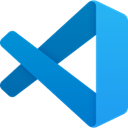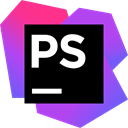Unlocking Your Development Potential: Top Eclipse Alternatives for Every Coder
Eclipse has long been a staple in the world of software development, particularly for Java, offering an extensive platform with runtimes and frameworks for building, deploying, and managing software. Known for its vast ecosystem of over 60 open-source projects, encompassing everything from Enterprise Development to Application Lifecycle Management, Eclipse is a powerhouse. However, no single tool fits everyone perfectly. Developers often seek an Eclipse alternative for various reasons, including specific language support, lighter footprints, or a different UI/UX experience. Whether you're looking for something more lightweight, more specialized, or simply a fresh perspective, there's a robust alternative out there for you.
Top Eclipse Alternatives
Finding the perfect integrated development environment (IDE) or code editor can significantly boost your productivity. Here are some of the top contenders that offer compelling reasons to consider them over Eclipse, catering to diverse development needs and preferences.

Visual Studio Code
Visual Studio Code is a free, open-source editor that combines a streamlined UI with rich code assistance and an integrated debugging experience, making it an excellent lightweight Eclipse alternative. Available on Mac, Windows, Linux, and Chrome OS, it's highly extensible by plugins/extensions and boasts features like a built-in terminal, autocompletion, IntelliSense, and extensive support for languages like C++, C#, Python, Ruby, and JavaScript. Its robust Git integration and customizable nature make it a favorite among many developers.

IntelliJ IDEA
IntelliJ IDEA is a powerful Java IDE by JetBrains, designed for programmer productivity. It offers both freemium and commercial versions and runs on Mac, Windows, and Linux. As a direct competitor and strong Eclipse alternative for Java development, it excels with intelligent code completion, go-to definition, static analysis, and integrated version control. Its focus on accelerating the development process makes it a top choice for serious Java developers.

Apache NetBeans
Apache NetBeans is a free, open-source Integrated Development Environment available across Mac, Windows, Linux, and BSD. It provides all the tools needed for professional desktop, enterprise, and web development, serving as a comprehensive Eclipse alternative. Key features include an embedded debugger, robust code completion and formatting, GIT support, and excellent support for Java, PHP, and Ruby, along with a simple installation process.

Microsoft Visual Studio
Microsoft Visual Studio is a powerful integrated development environment (IDE) from Microsoft, used to develop computer programs for Windows, web, and .NET. Available for Mac and Windows, with a free personal version, it's a strong Eclipse alternative, especially for those in the Microsoft ecosystem. Features include advanced code completion, embedded debugger, IntelliSense, extensive .NET support, C# scripting, and integrated Azure tools.

Geany
Geany is a small, lightweight, and fast Integrated Development Environment, making it an excellent Eclipse alternative for developers who prioritize performance and minimal dependencies. This free, open-source IDE runs on Mac, Windows, Linux, BSD, and PortableApps.com. It offers better syntax highlighting, a built-in terminal, customizable shortcuts, and support for themes, providing a minimalistic yet highly functional environment.

PyCharm
PyCharm is a cross-platform Python and Django IDE, offering both freemium and open-source versions for Mac, Windows, Linux, and BSD. It's a prime Eclipse alternative for Python developers, featuring on-the-fly code analysis, code quality tools, a graphical debugger, and excellent VCS integration including Git and GitHub. Its robust code completion and formatting capabilities streamline Python development.

GNU Emacs
GNU Emacs is much more than a text editor; it's an extensible, customizable text editor that can function as a full-fledged IDE, making it a highly adaptable Eclipse alternative. Free and open-source, it runs on Mac, Windows, Linux, and BSD. At its core is an interpreter for Emacs Lisp, enabling vast customization and extensibility through plugins, editable text color schemes, and robust syntax highlighting for all languages.

Code::Blocks
Code::Blocks is a free, open-source C++ IDE designed to be highly extensible and fully configurable, serving as a solid Eclipse alternative for C++ development. Available on Windows, Linux, and BSD, it offers comprehensive C++ support and is extensible by plugins, making it a versatile environment for building and debugging C++ applications.

PhpStorm
PhpStorm is a commercial IDE tailored for productive PHP and web development, making it an excellent Eclipse alternative for PHP-focused projects. Available on Mac, Windows, and Linux, it provides deep code understanding, top-notch coding assistance, and support for all major PHP tools and frameworks. Key features include intelligent code completion, refactoring, an integrated debugger, and live preview capabilities.

Qt Creator
Qt Creator is a cross-platform C++, JavaScript, and QML integrated development environment that is part of the Qt SDK. Available in commercial and open-source versions for Mac, Windows, Linux, and BSD, it's a robust Eclipse alternative, especially for GUI application development with Qt. It features advanced autocompletion, a powerful build system, an integrated debugger, and comprehensive refactoring tools.
The world of development tools is rich and diverse, offering many powerful alternatives to Eclipse. Each of these options brings unique strengths to the table, whether you prioritize a lightweight editor, a specialized IDE for a specific language, or a comprehensive environment with extensive features. We encourage you to explore these options and identify the best fit that aligns with your coding style, project requirements, and personal preferences, ultimately enhancing your development workflow.